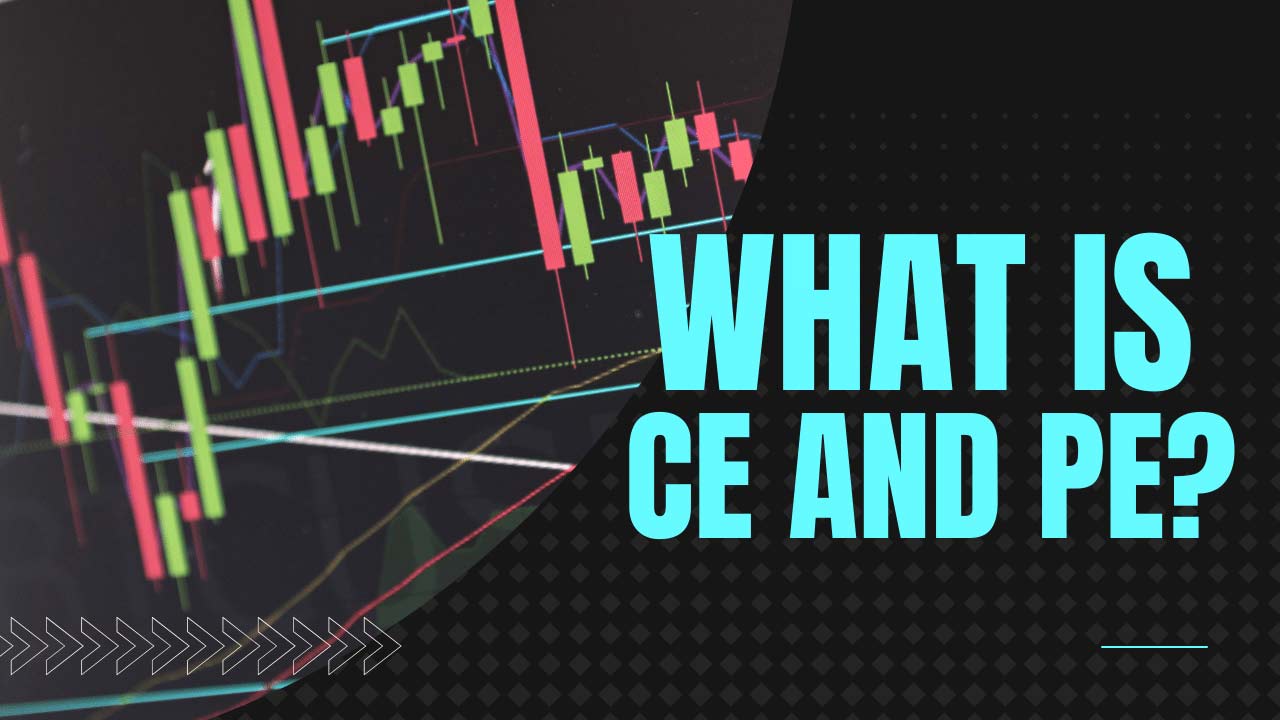The share market is very complex and confusing for a beginner. It's full of people who are trying to make their money grow and people looking for ways to lose it all.
When you're just starting out in this world, there are many terms that might be unfamiliar or confusing. One such term is CE (Call Option) and PE (Put Option). What do these mean? Let's find out!
What is CE?
The term CE is the short form of Call Options. However, the term CE stands for Call European. Call options are basically bets that the price of an asset will go up in value.
Call Options contracts are derivatives that allow investors to make a profit if the price of an underlying stock, bond, commodity, or other asset or instrument rises before its expiration date.
A share, bond, or commodity is the most basic type of asset. When the value of the basic asset increases, the call buyer makes profits.
Call options allow traders to buy a fixed number of shares at a certain price, with a strike price before a specific date i.e. the expiry date of that particular contract.
For example, if you are optimistic about stock XYZ, which is currently trading at Rs. 100, and would like to sell the shares in future for a higher price, then buying one Call option contract gives your right but not obligation to buy the number of shares specified in that particular contract.
So, at the end of the expiry of the contract if the stock closes above your buying strike price then your CE or Call Options give you profits.
When to buy or sell a CE or Call option?
You can buy a Call Option when you are expecting the price of the underlying asset to go up.
The pre-requisite is that the share should be in news for any reason, whether it's an upcoming quarterly result or a merger with another company etc.
The most difficult thing about buying CEs is when do you sell them? You have no obligation to hold on if your expectations are not met.
You can sell your CEs or Call options when the price of the underlying asset has gone up significantly higher than the strike price.
It's important to know that there is a potential loss involved in buying call options if you do not exercise them before their expiry date because then you will lose any money paid for premium and commissions associated with purchase of CEs.
However, you can also sell your call options before expiry if the price of the underlying asset has gone down significantly below the strike price.
The best way to buy CEs is by using the limit order, which allows you to place an order at a certain price or better.
A sell stop can also be used when buying call options contracts i.e. if the share reaches that particular price then automatically it will get sold & one will make profits out of his Call Options.
What is PE?
The term PE is the short form of Put Options and it stands for Put European.
A Put Option is just the opposite of a Call Option. A Put option is a contract that gives you the right but not obligation to sell an asset at a specific price before a specified date.
When one is bearish on any share and thinks that its prices will go down in the future, then he can buy Put options for that particular stock or commodity.
If your prediction turns out to be correct, then it's good news because you have already bought Put Options, which premium increases whenever the value of the share falls.
However, if the share prices go up instead of going down then your Put Options premium will go down and at the end of the expiry, if the stock closes above your buying strike price then your Put Option premium will become zero.
For Example, if you are bearish on shares of ABC and think that they would go down in value, then you can buy one Put Option at the current strike price contract.
So at the end of the expiry, if the stock closes below your selling strike price your Put Options will give you profits.
When to buy or sell a PE or Put option?
To buy a Put Option, you need to be bearish on the underlying asset. Also, it's better if the market is in a downtrend or there are several reasons why one should expect its prices would fall.
If your expectation comes true and share price goes down then it will give you profits through Put Options, but remember that there is always an inherent risk involved with buying Put Options because you are not obliged to hold them, if your expectations are incorrect.
So, the best way is to buy Put Option contracts with a limit order which means you can place an order at a certain price or better and also use sell stop orders when selling Put options i.e., whenever share reaches that particular level it gets automatically sold.
It's important to know that the Put Option premium will go up whenever share price goes down which is your gain when you sell them before expiry.
However, if the stock closes above your buying strike price then it becomes zero at the end of expiry and thus there are no further gains.
What are the other purposes of CE and PE?
The other purposes of CE and PE are to hedge your positions. Suppose, you have some shares of a particular stock in your Demat account. If suddenly there is any bad financial news that is affecting the overall Stock Market.
So, to survive during this bearish market, you can buy some Put Options or Sell some Call Options. Both buying a Put option or selling a Call option will provide you some safety in the short side and will act as insurance for your shares.
By hedging your positions, you will be secure from any possible losses that can arise due to huge price fluctuation on the market.
Summary
CE and PE or Call option and Put option are the two types of options contracts available in the market.
The main purpose of buying a Call Option is to make profits from increasing share prices whereas, people buy Put Options if they are bearish on any particular stock or commodity and think that its price will go down within a particular time frame.
Another reason for buying these options is hedging your positions which will help you to survive in bearish market conditions.
That's it, traders, I hope you have enjoyed this blog post. If you have any questions, please ask me in the comment section below.
Also read our other articles:
What is CMP in Share Market? Meaning, Full Form with Examples
What is DP charges? Meaning, Calculation with Examples
What is MTM in Share Market? Meaning, Full Form and its Importance
FAQs
What is CE and PE in Stocks?
CE means Call options and PE means Put options in stocks.
What is PE in Banknifty?
PE means Put options in Banknifty.
What is PE selling?
PE selling means to sell a Put option.




